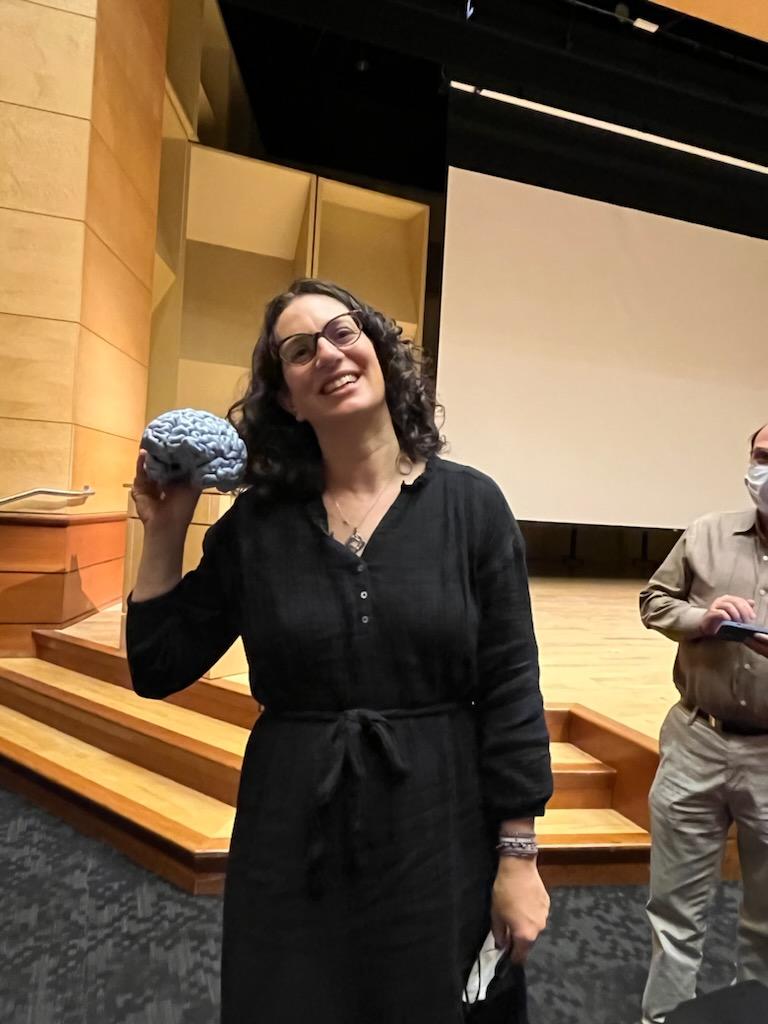Summer 2017
Published: 06/20/2017
Letter From the Chair
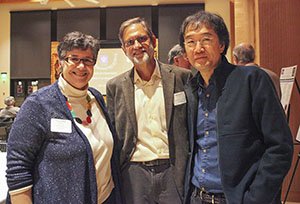 |
| Ana Mari Cauce & Jeansok Kim at 100th celebration. |
The UW Psychology Department was founded 100 years ago, in 1917! As part of our celebration of this historic anniversary, we recognize that many of the faculty hired in our early years ultimately became leading pioneers in all branches of psychological science. That is, their research has come to define our current understanding of why we behave the way we do. Our long standing tradition of taking multidisciplinary perspectives on behavior has allowed us (that is, our faculty along with our 25,000 undergraduate and 600 graduate students) to have positive impacts across all sectors of society, including law, medicine, scientific knowledge, education, engineering, and clinical and public service. Learn more about how our department grew to be not only leaders in research, but also a leader in training the next generation of innovative minds. Such a range of influences demonstrate that understanding behavior is fundamental to the success of any organization and thus has the potential to solve society’s greatest challenges.
It is now up to us to continue our predecessors’ legacy of excellence in research, teaching, and societal impact. Over the next 100 years, our mission is to Promote Healthy Minds Through Psychological Science. We aim to accomplish this mission by addressing three of society’s major challenges:
- Understand the Mind Through Behavioral and Brain Sciences:
- Understanding how the most complex processor known (our brain) perceives, learns and communicates with the world around us, and how these processes impact our decisions and actions, will allow us to discover new and transformative technologies that improve quality of life.
- Optimize Human Potential by Increasing Resilience in Children and Adults:
- How can we enable all individuals in our society to experience sound mental health and psychological well-being? How do we optimize human potential? We will integrate our well known clinical research with developmental, social, cognitive, and neuroscience-based psychology to create cutting edge innovations for intervention in cases of suicide, depression, anxiety, addiction, and developmental challenges.
- Achieve Social Equity:
- We will synthesize developmental, social, and biological approaches to understand people’s biases and how biases translate into inequality at the societal level.
You can partner with us so that we can solve these critical societal challenges together! Consider becoming a Friend of Psychology, as your support will help our students and faculty make great advances that improve society. To our current Friends, thank you so much for your continued support! Your contributions have already transformed the future of students and programs alike. Please let me know if you have comments or questions about our future initatives.
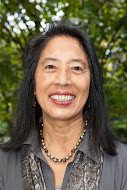 |
| Sheri Mizumori |
Have a wonderful summer!
Warm wishes to you and your family,
Sheri
Featured Articles
Psychology Retirements
Please join the Psychology Department in recognizing the distinguished contributions and service of our faculty who retired during the 2016-2017 academic year. These faculty leave significant legacies in our undergraduate and graduate programs and we wish them well in their retirements. If you would like to send a memory or message of gratitude and congratulations along, those can be sent to Joanne Edwards. Donations in honor of our faculty can be made here.
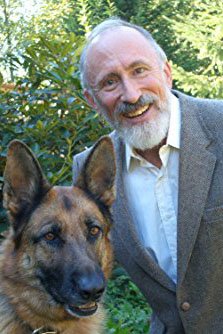 |
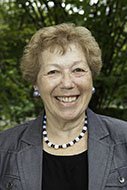 |
|
| David Barash | Miriam Bassok |
Professor David Barash joined UW in 1973. David is an evolutionary psychologist who frequently taught in the UW Honors Program and taught seminars in psychology such as Ideas of Human Nature and the Psychology of Peace. David is a prolific public scholar, who frequently publishes opinion pieces about science, peace, and religion.
Professor Miriam Bassok joined UW in 1997. Miriam is a cognitive psychologist whose research explores problem solving and analogical reasoning. Miriam taught our undergraduate Cognitive Psychology course and was a long time director of the UW Psychology Honors Program through which she introduced our aspiring students to the research labs that became their thesis homes and ensured they had successful experiences.
Dr. Patricia Loesche was the Director of the Psychology Writing Center from its establishment in 1991. Patti also served as a lecturer in Psychology and taught a wide variety of undergraduate courses. She guest lectured widely on scientific writing in many psychology courses, and collaborated with faculty on the design and evaluation of writing assignments.
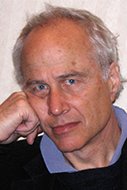 |
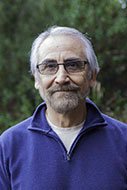 |
|
| Geoff Loftus | Jaime Olavarria |
Professor Geoff Loftus joined UW in 1972. Geoff’s scholarship addresses human memory, visual perception, and statistics. Geoff is a highly regarded expert witness who has been instrumental in educating the courts about the science of eyewitness memory and his testimony has resulted in exonerations of those wrongly convicted by faulty eyewitness identification procedures. Geoff taught Probability and Statistics to thousands of psychology majors.
Professor Jaime Olavarria joined UW in 1990. Jaime’s scholarship explores the development, organization, and function of neuronal pathways in the visual system. Jaime taught our undergraduate course in Biopsychology and he led many Exploration Seminars taking UW undergraduates to Chile to learn about public and mental healthcare delivery systems.
Cognition/Perception Student Scores a Hat Trick of Honors
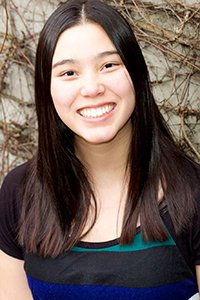 |
| Brianna Yamasaki |
Brianna Yamasaki, currently completing her Ph.D. in Cognition and Perception with Dr. Chantel Prat, has been raking in the honors over the past year. Brianna descibes this remarkable year of awards below.
My research and teaching practices are guided by a passion for understanding and supporting individual differences in thinking and language abilities. This passion has led my program of research through a series of studies in which I explore the factors that lead to individual differences in reading ability. For example, my dissertation research investigates a novel model of second-language English reading ability. Many current models of second-language reading ability focus on factors that are known to relate monolingual reading ability. While it has been shown that these factors are important, one novel aspect of my model is that it incorporates aspects unique to the bilingual reader, such as the influence of having to manage two language systems and the cross-linguistic interactions between them. Looking forward, I hope that my work will provide a better understanding of the factors that may interfere as individuals try to read and learn in a second language. Hopefully, the understanding gained through my dissertation research will be used to develop interventions that can ease or eliminate the barriers students encounter in such situations.
This last year, I was fortunate to receive the Stroum Endowed Minority Fellowship through the Graduate Opportunities and Minority Achievement Program (GO-MAP) of the Graduate School at the University of Washington. This fellowship provided support so I could focus on my dissertation research this year. In addition, it provided networking opportunities and exposure to valuable university resources. GO-MAP facilitates writing groups for their dissertation fellows each year. My writing group provided an opportunity to get feedback on my own work from a diverse group of graduate students as well as exposure to a wide range of research being conducted by graduate students across the campus. Significantly, the group provided much needed peer support through the dissertation writing process from an interdisciplinary group of fellow graduate students. Recently, I was awarded the Earl and Mary Lou Hunt Endowed Graduate Fellowship from the Psychology Department. This fellowship will allow me to complete my dissertation this summer. The time and resources provided by the Stroum and Hunt fellowships have been, and will be, invaluable in helping me complete my dissertation and launch my career in psychological science.
My research experiences have helped to develop my strong appreciation for educational equity and my teaching philosophies have been built upon this perspective. Specifically, my teaching practices are guided by a goal of maximizing the learning success of all of my students. To accomplish this goal, I work to be creative in the ways in which I urge my students to engage with class material. Last summer, I taught a Cognitive Neuroscience course which paired traditional lectures on electroencephalography (EEG), with a tour of an EEG lab where students were able to talk to a researcher about the work her lab is doing with EEG, and an interactive in-class demonstration where students got the opportunity to record their own brain activity with an EEG cap.
One of my favorite aspects of teaching is when you are working with a student, or a group of students, and you see that “aha” moment when they finally understand something they have been struggling with. These types of moments motivate my multi-media approach to teaching. My goal is for each student to achieve their “aha" moment by grasping concepts through the medium that is most accessible to them. Like my research, my teaching is aimed at identifying and breaking barriers that hold students back. Thus, my research experiences have helped to guide my teaching practices in this way. But, much of what I have learned about what it means to be an effective teacher has been through my experience working as a teaching assistant for a number of different courses and instructors in the Psychology Department. As a teaching assistant I have been exposed to many different models of teaching and through an active-learning process I have used this experience to guide my teaching practices. Given the number of amazing instructors and fellow teaching assistants I have worked with at the University of Washington, I felt honored to be awarded the Department of Psychology Distinguished Teaching Award in 2016. More astonishing, my students nominated me for and I received the University-wide University of Washington Excellence in Teaching Award in 2017. My mentors and teachers have played an immeasurable role in my journey as a graduate student, and when I get the opportunity to teach, I aim to make at least a small positive impact on my students. Being the recipient of these teaching awards means a great deal to me, as it represents me taking steps towards achieving this goal.
I feel fortunate to have had the opportunity to engage as both a researcher and teacher at the University of Washington and I am so thankful to the people and programs that have provided support for me to do this!
Supplemental Reading:
- Excellence in Teaching Award for graduate student instructors and/or teaching assistants.
- Ashwin Bhandiwad (Animal Behavior with Joseph Sisneros), Jessica Chen (Adult Clinical with Ronald Smith), Exu Anton Mates (Animal Behavior with Jim and Renee Ha), and Jose Ceballos (Cognition & Perception with Chantel Prat) also received fellowship awards from GO-MAP and shared their experiences.
- Graduate Opportunities & Minority Achievement Program (GOMAP)
Katie Champoux: Life-long Husky Awarded McFarlane Scholarship
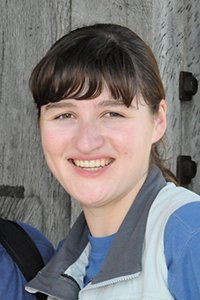 |
| Katie Champoux |
"I've been a Husky my whole life - I was born at the UW, attended UW camps in the summers, and the UW was my first choice for college."
- Katie Champoux
A Husky from day one, Katharine (Katie) Champoux will enter her final year at UW as the recipient of an Irene Dickson McFarlane Tuition Scholarship. These $5000 scholarships rotate annually between the four divisions of the College of Arts and Sciences, and are intended to honor and support the College's very best undergraduate students.
Katie, who is pursuing a double major in psychology and neurobiology, was nominated by the Psychology Department with the strong support of her research mentor, Dr. David Perkel, who describes Katie as "having shown the maturity and focus of a mid-career graduate student." Dr. Perkel, a professor of biology and otolaryngology, further notes that Katie "exemplifies the very best of what one hopes to see in a student and scholar at her stage." Katie's research in Dr. Perkel's lab examines the neural mechanisms of memory, learning, and vocalization by studying how juvenile songbirds learn and practice their songs.
With plans to ultimately become a pediatrician or family medicine physician, Katie's is taking full advantage of the wide range of both classroom based and experiential learning opportunties available to her. "I view my undergraduate coursework as a precious time to learn about other people and stretch my thinking," explained Katie in her Scholarship application statement, "as well as to accomplish the pre-med requirements and earn a bachelor's degree." Equally passionate about giving back to the community, Katie has volunteered with the Child Life program at Seattle Children's Hospital and with the Little Bit Therapeutic Riding Center where she helps children and adults with disabilities in equine-assisted therapies.
Katie discovered her interest in psychology in a high school Advanced Placement course. "From the very beginning," she recalls, "I've enjoyed learning about human behavior and the neural pathways involved in memory and learning." Special shout-outs go to Psychology Lecturer Dr. Ann Culligan and Psychology Professor Dr. Jaime Diaz, both for the fascinating subject matter of their courses and for their outstanding teaching abilities. Over the coming academic year, Katie plans to take the remaining courses needed for her psychology and neurobiology majors, as well as a range of elective courses as she prepares to apply to medical school.
Edwards Public Lectures Available Online

The 2017 Allen L. Edwards Public Lecture Series, Improving Society Through Brain Science, may now be viewed online at UWTV. These lectures give you a sample of the ways our Psychology and Brain Science research can directly impact your lives!
See the lectures here.
This free, public series is made possible by generous bequests from Professors Allen L. Edwards and Roger B. Loucks.
Letter from the Chair
Dr. Cheryl Kaiser congratulates the Class of 2022 and Psychology's newest PhD recipients. She invites us to share in her optimism and take part in rest, recovery, and kindness to ourselves and our communities as we move forward into summer quarter.
